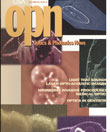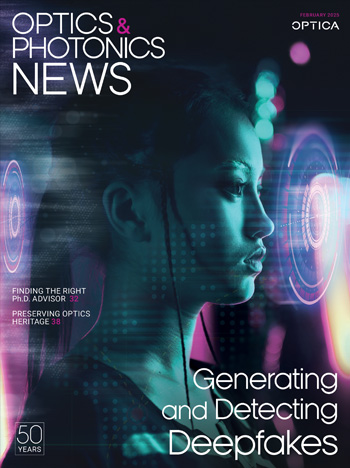
June 1999 Issue
Feature Articles
Therapeutic Lasers and Optical Diagnostic Technology in Dentistry
OPTICAL TECHNOLOGIES PROVIDE PAINLESS PROGRESS IN DENTAL DISEASE PREVENTION, DIAGNOSIS, AND TREATMENT.
by Daniel FriedLaser Opto-Acoustic Imaging: Let There Be Light That Sounds!
Ultrasonic imaging is versatile, noninvasive, portable, relatively inexpensive, and is second only to X-ray in annual procedural volume. Optical imaging continues to search for an identity in the medical arena. Opto-acoustic tomography combines the merits and most compelling features of both technologies.
by Howard NathelOptical Tools Offer Minimally Invasive Medical Diagnostics
Optical imaging and spectroscopy can be applied to a wide variety of medial diagnostic tests, including screening for early signs of cancer.
by Yvonne Carts-PowellThe van Cittert-Zernike Theorem
Our goal is to present a simple derivation of the van Cittert-Zernike theorem without invoking the theories of probability and stochastic processes. This is possible because most sources of practical interest are ergodic, meaning that time-averaging over a typical waveform emanated by the source yields statistical information about the source's inherently random radiation processes. We shall make exclusive use of time-averaging to derive the degree of coherence of a pair of points within the field of an extended, quasi-monochromatic, incoherent source.
by Masud MansuripurHigh-NA Pickup Objective for High-Density Media
In 1967 Duguay and Rentzepis suggested the possibility of producing population inversions at short wavelengths by x-ray photoionization of inner-shell p-electrons in atomic species. Instead, the present work uses inner-shell d-electron removal (which has a larger cross section) and improves the pumping efficiency to a specific state by concentrating on species with closed outer shells. The concept of efficient broadband pumping with laser-produced plasmas, as proposed by Harris et al. and demonstrated by Caro et al. at Stanford University, to produce metastable states was also incorporated into this work.
by W. T. Silfvast, O. R. Wood II, J. J Macklin, and H. Lundberg
![Fiber draped around a hand, demonstrating its flexibility. [Photo by Z. Wang and L. Wei]](https://opnmedia.blob.core.windows.net/$web/opn/media/images/articles/2025/0325/departments/202503-cover-web.jpg?ext=.jpg)

![An artist’s rendering of a pulse of circularly polarized light hitting a 2D semiconductor. [Illustration by S. Alvey / University of Michigan]](https://opnmedia.blob.core.windows.net/$web/opn/media/images/articles/2025/0125/departments/202501-cover-web.jpg?ext=.jpg)